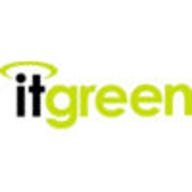Illegal WEEE and Computer recycling/ export operations raided in London!

They tout themselves as being Computer recyclers and WEEE recycling businesses, but a number of operations within the UK's recycling industry look to involve organised crime. A number of raids carried out by the Environment Agency over the past months have highlighted the illegal trade in hazardous electronic and computer waste, with the majority of non-working, totally obsolete equipment being destined for Africa. Some 500 container loads were seized on 2 sites located around London. As stated in the Guardian, "Our investigations have found that the majority of this equipment is beyond repair and is being stripped down under appalling conditions in Africa. But the law is clear - electrical waste must be recycled in the UK, not sent to developing countries in Africa where unsafe dismantling puts human health and the environment at risk," said the Environment Agency's national enforcement service project manager, Chris Smith. "The Environment Agency has created a national team to stamp out this illegal trade and strong intelligence work has resulted in today's operation - the most significant action to date in investigating suspected electrical waste being shipped to Africa.
The trade, which to date has been underpinned by The illegal trans-continental shipping of hazardous electrical and electronics waste may be coming to an end in the UK. Evidence of the size of the this trade has finally hit the headlines as a direct result of these raids. In effect, the export of end-of-life waste computer equipment offers a quick, lucrative solution for many of the smaller IT recycling companies operating in the UK. However, it leaves businesses and householders open to fraud through the "data mining" of hardware. In effect, if this industry is to tidy itself up, it'll be at the expense of the businesses wanting to recycle their old equipment. The use of "free" computer recycling companies is not an option any more. Paying to have your waste recycled is the only way you can objectively ensure that it will be properly recycled and that your data will be effectively erradicated.